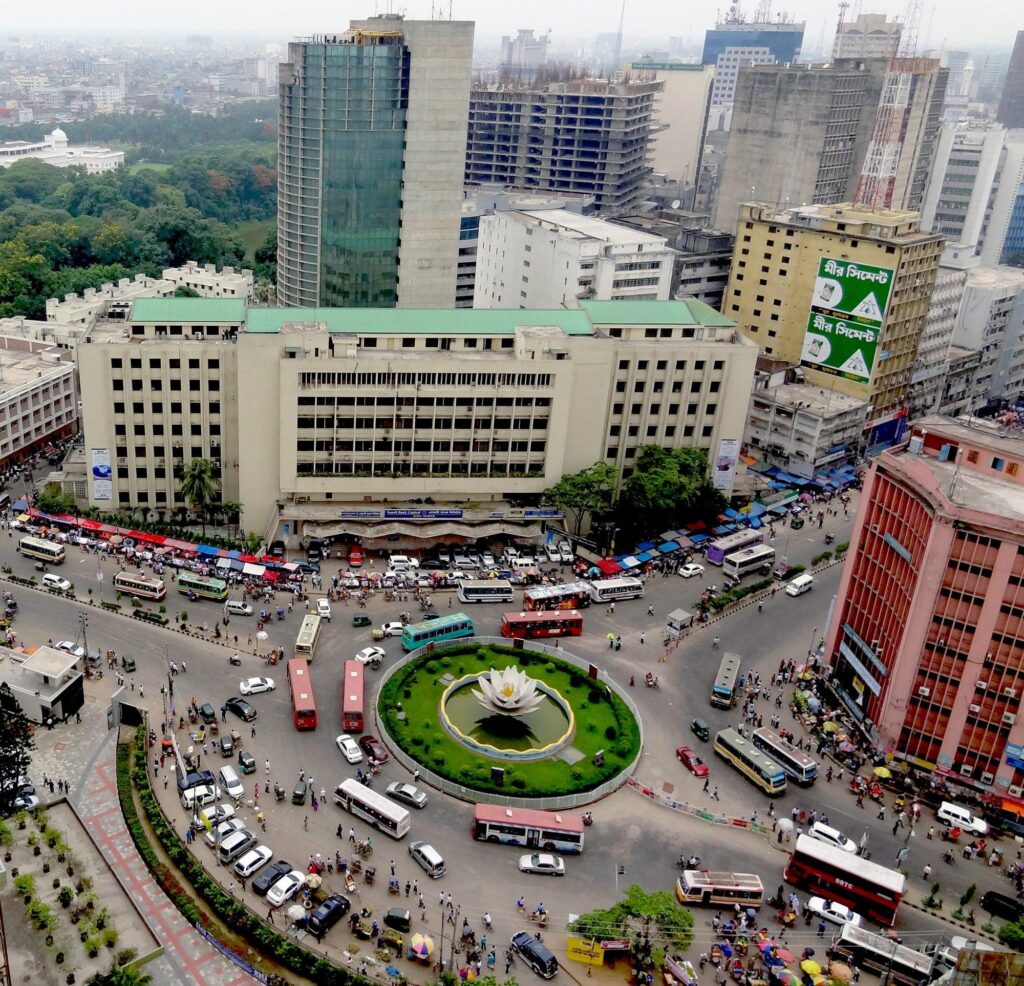Dhaka, Bangladesh – As one of the fastest-growing megacities in the world, Dhaka is rapidly approaching a critical tipping point in its environmental stability. The city’s unchecked urban expansion, deteriorating air and water quality, and dwindling green spaces signal an urgent need for comprehensive action to prevent an ecological disaster. Experts and activists warn that without immediate and sustained intervention, Dhaka’s ecosystem could face irreversible damage, threatening the health and livelihoods of millions. This article examines the current environmental challenges confronting Dhaka and explores the steps necessary to steer the city away from an ecological crisis.
Dhaka Facing Escalating Environmental Challenges and Urban Strain
The capital city is grappling with a surge in environmental degradation that threatens the health and well-being of its over 20 million residents. Rapid urbanisation, coupled with unchecked industrial growth, has intensified air and water pollution, leading to hazardous living conditions. Dhaka’s once manageable drainage systems are now overwhelmed, escalating flooding during monsoon seasons and paralyzing city functions. The unchecked expansion of concrete jungles has severely reduced green spaces, compromising natural air filtration and exacerbating the urban heat island effect.
Key factors driving this ecological crisis include:
- Unplanned housing developments infringing on wetlands and water bodies
- Rising vehicular emissions due to inadequate public transport infrastructure
- Improper industrial waste disposal contaminating rivers and soils
- Frequent power shortages increasing reliance on diesel generators
| Environmental Issue | Current Impact | Projected Trend |
|---|---|---|
| Air Pollution | 75% of residents exposed to hazardous PM2.5 levels | Increase by 15% over next 5 years without intervention |
| Water Contamination | Over 60% of surface water sources highly polluted | Further degradation expected amid growing industrial output |
| Urban Heat | Average city temperature 3°C above national average | Projected rise of an additional 1.5°C by 2030 |
Urgent Measures Needed to Address Pollution and Overpopulation
Dhaka’s rapid urban growth has pushed the city to the brink of an environmental crisis, with pollution and overpopulation compounding to strain its fragile ecosystem. Toxic air quality levels have become a daily norm, posing severe health risks to millions of residents, while unmanaged waste and water contamination exacerbate the urgency of the situation. Without immediate intervention, the capital risks turning into a sprawling ecological disaster zone, one where natural resources will be irreparably damaged, and quality of life drastically diminished.
- Air pollution: Vehicular emissions and industrial discharge contributing over 70% of urban smog.
- Population density: Over 47,000 people per square kilometer, straining infrastructure.
- Waste management failure: Only 37% of solid waste properly treated in Dhaka.
| Pollution Indicator | Current Level | WHO Safe Limit |
|---|---|---|
| PM2.5 (μg/m³) | 120 | 25 |
| NO2 (ppb) | 85 | 40 |
| Water Contamination (BOD mg/L) | 8.2 | 3 |
Strategic urban planning and policy reforms are critical to reversing current trends. Implementing green zones, expanding public transport, and enforcing stricter emission standards could mitigate environmental hazards significantly. Additionally, increasing public awareness and incentivizing sustainable living remain essential components of any comprehensive solution. The clock is ticking, and decisive action from governmental authorities, private sectors, and citizens alike is indispensable to safeguard Dhaka’s future.
Strategic Urban Planning and Community Engagement Key to Sustainable Future
Urban development in Dhaka demands a strategic approach that transcends conventional planning methods. Rapid population growth and unchecked construction have stressed the city’s natural resources, making it imperative for policymakers to integrate sustainable frameworks that balance development with environmental conservation. Effective urban planning must prioritize green spaces, improved waste management, and resilient infrastructure to withstand climatic challenges. Without these, Dhaka risks further degradation of air quality, water bodies, and overall livability – consequences that will disproportionately affect vulnerable communities.
Community involvement emerges as a powerful catalyst in driving sustainable change. Engaging local residents, civil societies, and businesses cultivates a shared responsibility toward Dhaka’s future, fostering transparency and accountability. Through initiatives like participatory workshops, neighborhood-based environmental monitoring, and educational campaigns, stakeholders can collaboratively identify and implement viable solutions. Below is a snapshot of key community engagement strategies that could reshape Dhaka’s urban landscape:
- Interactive Urban Workshops – Encouraging citizen input on local issues.
- Green Civic Projects – Community-led tree planting and clean-up drives.
- Digital Platforms – Real-time feedback and reporting on environmental concerns.
- Collaborative Policy Forums – Bridging gaps between residents and decision-makers.
| Area of Focus | Key Actions | Expected Outcomes |
|---|---|---|
| Green Infrastructure | Develop parks, restore wetlands | Improved air and water quality |
| Waste Management | Promote recycling, reduce landfill | Less pollution, healthier communities |
| Community Engagement | Host participatory forums | More inclusive planning, stronger ownership |
To Conclude
As Dhaka continues to grapple with rapid urbanization and environmental neglect, the urgency to halt its slide toward ecological disaster has never been greater. Sustainable planning, stringent regulatory measures, and active community engagement are critical to preserving the city’s fragile environment. Without concerted efforts from government authorities, civil society, and residents alike, Dhaka risks facing irreversible environmental degradation that will threaten the health and wellbeing of millions. The time to act is now-ensuring a greener, safer future for the city and generations to come.
